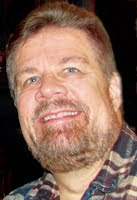“Fix Your Writing” is a writing blog. Clean, clear writing traditionally is short and snappy. Forget the adjectives. No 50-cent words, please.
That can, and will be done.
But November’s entries comprise a philosophical statement. Writing is a mindset. November’s blog is my mindset – the way I look at writing. The way I approach the craft.
At the very core of that philosophy is a contention that “writing is easy.” Research is tough. Rewriting, editing, proofreading: Tough, tough, tough. Fluency – tougher still. Eloquence … dang nigh impossible. The works of the masters, from Aristotle to Wouk? Veritable missives from the gods – to be wondered at, but emulated only by the fewest of the brave.
“Fix Your Writing” is a How To for amateurs and, perhaps, for a few pros who need to get a life. How to …
Consider this: “How to …” anything is a tough challenge.
“How do I get to the Metzger place?”
“Well, I reckon you can take this road a half mile or so, turn left, then south at the big oak. Follow that road til you get to where the big purple barn used to be, and turn right again. Follow that road a piece. You can’t miss it.”
At that point, my next question usually is: “What’s the first thing I’ll see after I miss it?”
How to … JUGGLE! Set me face-to-face with a marginally coordinated schmuck and I can have him pitching three balls perpetually on the fly in a half hour or so. But write out the instructions? Wouldn’t know where to start.
As a young father, many moons ago, it was patiently explained to me that the programming required to make a robot take a step or two across a room would likely fill a book. A big book.
Yet in the first three years of life, a baby’s brain masters the process of one-foot-after-another, of spoon-to-the-mouth, of please-sir-I-want-some-more and hundreds of thousands more … a compilation of complex synaptical-firing sequences that would boggle the world’s greatest supercomputer.
But it’ll take that child 18 years of Dr. Seuss, book reports, essays and term papers to accumulate enough skill to get a passing grade in Freshman English.
Juggling. Riding a bicycle. Jai alai. Square dancing. Those are easy.
Still wanna be a Writer?
